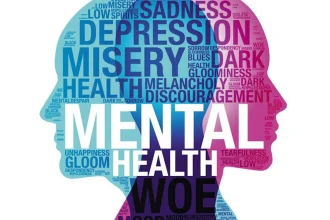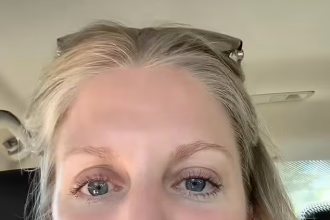Scientists say they may finally have uncovered why so many people struggle to give up alcohol.
A new study suggests the brain physically adapts to rely on drinking as a way to ease stress and anxiety—creating a powerful cycle that makes quitting extremely difficult.
Researchers at Scripps Research in California identified a specific cluster of brain cells that becomes more active when drinkers begin to associate alcohol with relief from withdrawal symptoms.
Experts say the finding pinpoints a biological mechanism behind addiction, offering fresh evidence that alcoholism is not simply about pleasure or willpower, but deep-rooted changes in brain function.
The study, published in Biological Psychiatry: Global Open Science, found the effect occurs in the paraventricular nucleus of the thalamus, a region that helps regulate stress and emotional states.
Lead author Professor Friedbert Weiss said: ‘What makes addiction so hard to break is that people aren’t simply chasing a high—they’re trying to escape the powerful negative states of withdrawal.
‘Alcohol provides relief from that agony, which locks people into the cycle.’
Scientists say the discovery could pave the way for new treatments for alcohol dependence and anxiety disorders.

Experts now say no amount of alcohol is safe as scientists work to better understand the pleasure and reward principles behind addiction
Your browser does not support iframes.
Dr Hermina Nedelescu, a neuroscientist at the institute and study co-author, added: ‘It shows us which circuits are recruited when the brain links alcohol with relief from stress—and that could be a game changer in how we think about relapse.’
Like other drug addictions, alcohol addiction is characterised by cycles of withdrawal, sobriety and relapse.
The researchers found that when rats were initially given alcohol, they learnt to associate it with pleasure and seek more alcohol.
Interestingly, the researchers noted that this connection was stronger after a few cycles of withdrawal and relapse.
After learning that drinking eased the unpleasant feelings of withdrawal—such as loss of appetite, nausea, depression, agitation and fatigue—the rats sought out more alcohol and would remain persistent even in uncomfortable situations.
‘When rats learn to associate environmental stimuli or context with the experience of relief, they end up with an incredibly powerful urge to seek alcohol in the presence of that stimuli—even if conditions are introduced that require great effort to engage in alcohol seeking,’ Prof Weiss explained.
‘That is, these rats seek alcohol even if that behaviour is punished.’
The researchers concluded that this negative reinforcement—the drive to act in order to escape pain or stress—and the activation of the PVT in the brain in response is crucial for how we learn and perpetuate addiction.
Your browser does not support iframes.
Your browser does not support iframes.
Dr Nedelescu added: ‘This work has potential applications not only for alcohol addiction, but also other disorders where people get trapped in harmful cycles.’
The researchers now hope to expand the study to look at gender-specific behaviours to pinpoint the exact molecules and neurochemicals that are involved in the brain processes driving so many people to the bottle.
Weiss added: ‘As psychologists, we’ve long known that addiction isn’t just about causing pleasure—it’s about escaping those negative hedonic states.
‘This study shows us where in the brain that learning takes root, which is a step forward.’
The latest official figures shows deaths from alcohol have soared to a record high in Britain with almost 10,5000 alcohol-related deaths in 2023 alone.
The WHO estimate it kills three million people around the world each year.
The NHS recommends people drink no more than 14 units of alcohol per week—the equivalent of six pints of beer, or six medium glasses of wine—spread out over at least three days.
However, experts have recently warned that no amount of alcohol is ‘safe’, adding that slashing alcohol intake could ‘play a significant role in dementia prevention’.
Your browser does not support iframes.
Recent polls suggests that the average Briton drinks roughly 18 units of alcohol a week.
Those concerned they may have a problem with alcohol should visit their GP, who can make an assessment and refer them to specialist clinics for counselling and help with withdrawal.
Withdrawal symptoms, including anxiety, shakiness, vomiting and fast heart rate, usually resolve within a week, according to the NHS.
Regular drinking has also been linked to increased risks of high blood pressure, liver disease and several cancers, according to the NHS.


















